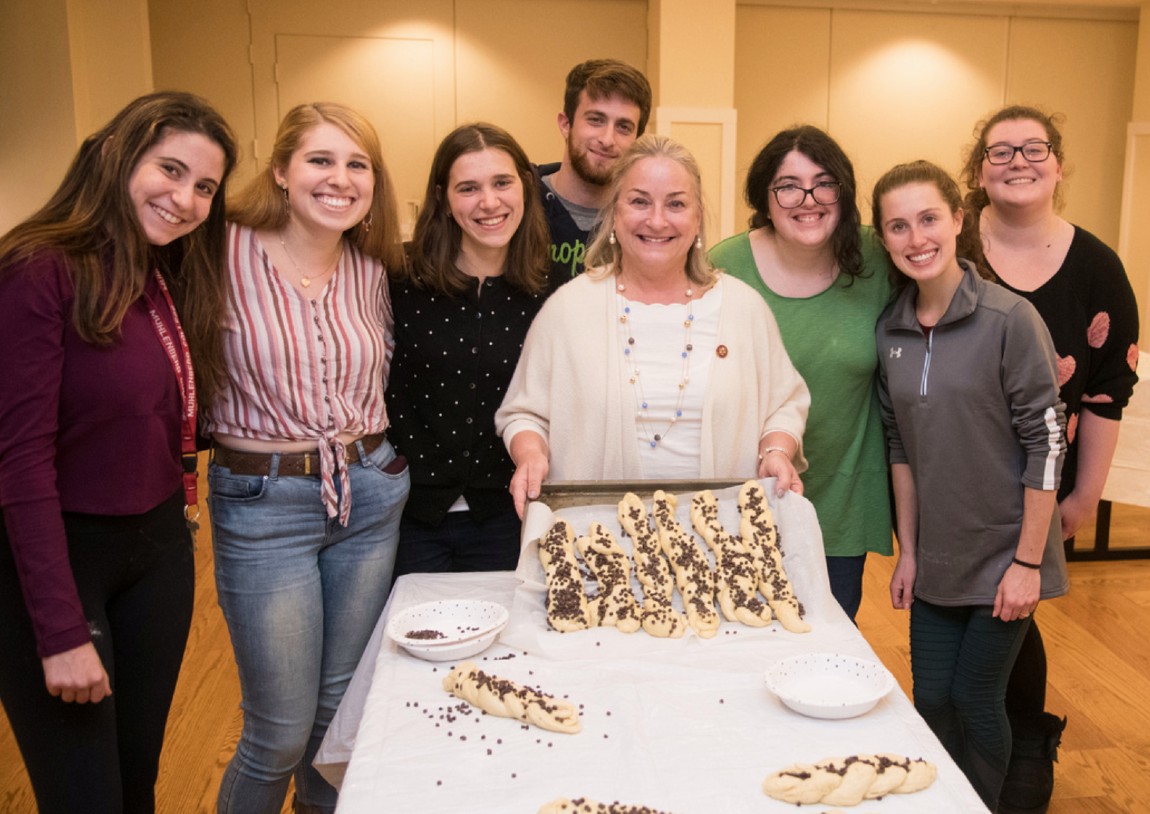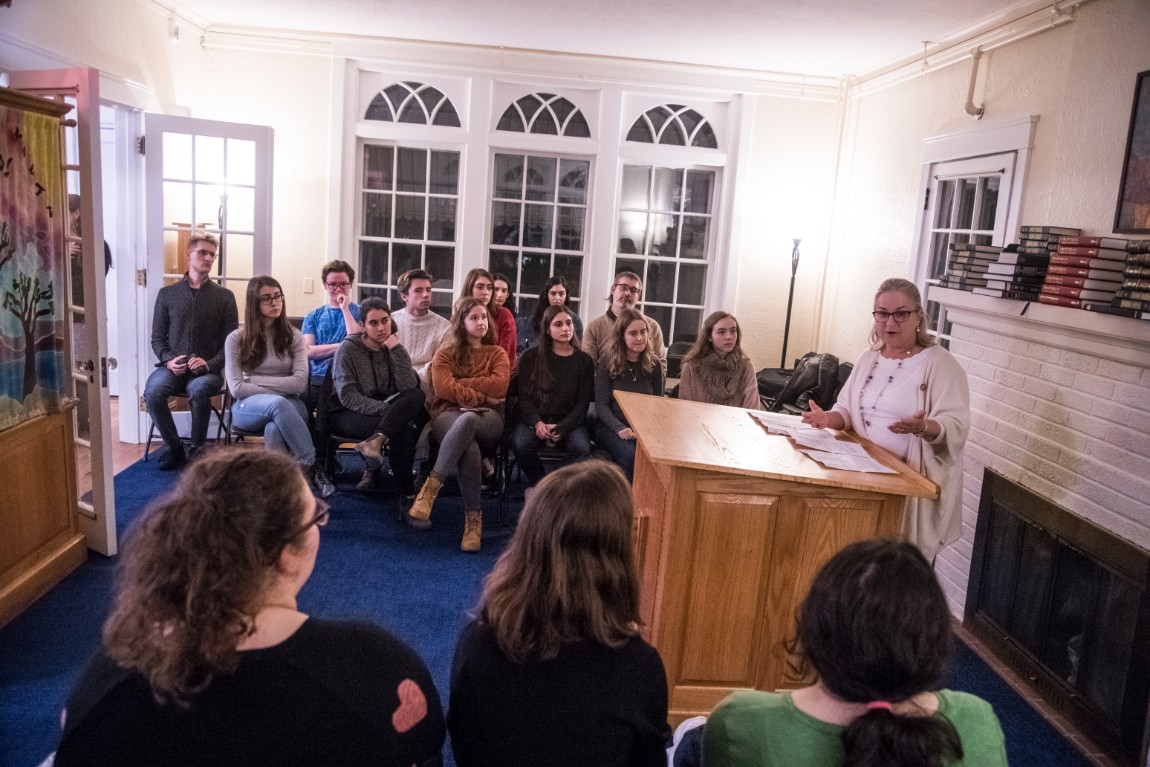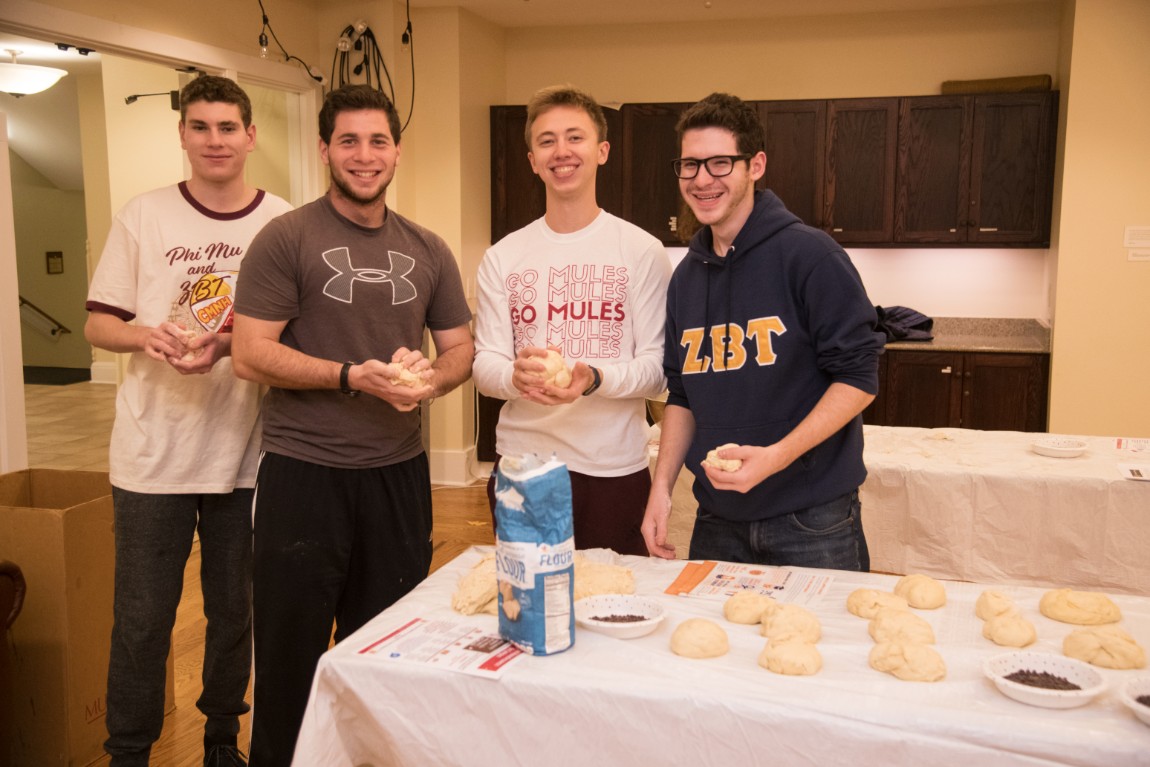Baking for the Better
At an event organized by Challah for Hunger’s co-presidents, Congresswoman Susan Wild and students discussed the stigma surrounding food insecurity on college campuses and how to make a difference.By: Laura Diorio ’20 Tuesday, November 26, 2019 11:58 AM
 Congresswoman Susan Wild, flanked by Challah for Hunger Co-Presidents Gabriela Solomon ’20 (R) and Natalie David ’22 (L) and other students, show their braided handiwork. Photos by Tom Amico.
Congresswoman Susan Wild, flanked by Challah for Hunger Co-Presidents Gabriela Solomon ’20 (R) and Natalie David ’22 (L) and other students, show their braided handiwork. Photos by Tom Amico.This month, Congresswoman Susan Wild came to campus for an event co-sponsored by Hillel, Berg Votes and Challah for Hunger, a group that fights to end food insecurity on college campuses. Challah for Hunger Co-Presidents Gabriela Solomon ’20 and Natalie David ’22 decided to invite Wild because she has been appointed to the House Education and Labor Committee, and the co-presidents found Wild’s work to be in support of the mission of Challah for Hunger. At the event, Wild participated in a Q&A and baked and braided challah with dozens of students.

Wild talked about her experience touring colleges and universities in her district, noticing that many of them had food pantries. (Muhlenberg opened its M.U.L.E. [Muhlenberg Useful Living Essentials] Community Cabinet before the start of the fall semester.) She spoke about how food insecurity is connected to issues like college affordability and student debt, and how students often live with food insecurity for years before coming to college.
“The food pantry has done a really great job of looking at what students actually need as well as creating a stigma-free, shame-free environment,” David says. “In the first five weeks of the pantry being open, 150 students utilized the donations.”

The students discussed with Wild the steps being taken to improve circumstances for all students on campus, including initiatives such as the food pantry, meal donations, emergency grants and swipe donations at the dining hall. They also brought up the recent visit from author and Harvard sociologist Tony Jack, who spoke on the experiences of lower-income students in higher education, as well as the subsequent talkback event for students to share their thoughts with administrators.
Challah for Hunger’s co-presidents feel the next step is to encourage students to continue the conversation about basic needs on campuses.
.jpg)
“Education is supposed to be the great equalizer in our country, and no student should have to decide between buying textbooks or their next meal,” David says. “Once students recognize this as an issue, they are much more open to discussing and eliminating the problem. As a community, we can remove the stigma surrounding food insecurity.”
